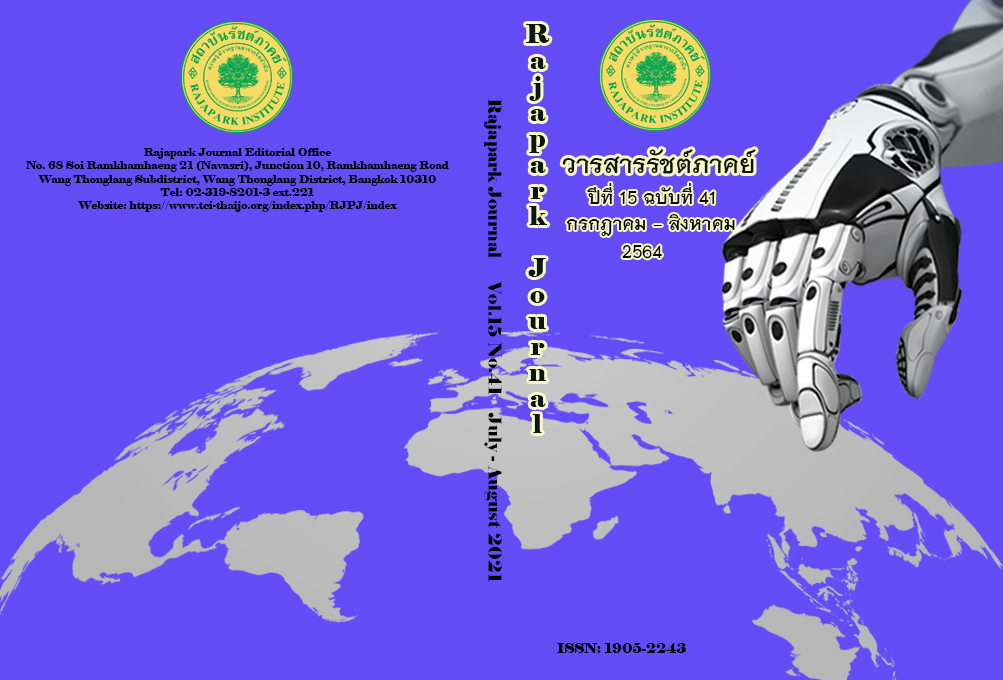Factors Affecting Decision in Elections of Members of Parliament Hat Yai District Songkhla Province
Main Article Content
Abstract
The purposes of this study were as follows: 1) to study the factors affecting the decision to exercise the right to vote for members of the House of Representatives; and 2) to compare the level of voting decisions of the people on political participation, perception, campaign, and characteristics of a political party leader. This study was a quantitative research. The sample used voters in Hat Yai District, randomly 400 people. Data were analyzed using percentage, standard deviation, and mean. Test hypothesis using t-test statistics and one-way analysis of variance. It was found that mean factors affecting the voting decision election of members of the House of Representatives, overall, was at a high level. The research found that different sexes influenced the decisions of the people in every way in their vote for the House of Representatives. Different ages influenced the decision to vote in the House of Representatives. Only about the political perception characteristics of the head of political parties, marital status different levels of education, occupation, and monthly income did not affect the decision to vote in the House of Representatives in all respects. It was recommended that the next research should study and compare with other districts or provinces in order to develop motivating decisions to continue exercising the rights of the people.
Article Details
Views and opinions appearing in the Journal it is the responsibility of the author of the article, and does not constitute the view and responsibility of the editorial team.
References
Boonbongkarn, S., & Phongphaew, P. (1983). Voting Behavior of Thai People. Bangkok: Research Dissemination Project Chulalongkorn University.
Chan-Em, S. (1997). General Psychology (10th ed.). Bangkok: Thai Wattanapanich Printing.
Cohen, W. C. (1971). Democracy. New York: The Free Press.
Harnsurin, S. (2010). Residents's Political Participation in Tambon Mueang Noi, Thawat Buri District, Roi Et Province. Master of Arts (Government). Mahamakut Buddhist University.
Kotiram C. (2018). How can Elections and Political Parties of the People for the People come True?. Retrieved from http://dspace.spu.ac.th/bitstream/123456789/896/1/
Krairerksh, S. (1999). Media Exposure Knowledge Awareness and Political Behavior of People in Bangkok Congested Communities. Master of Arts (Development Communication). Chulalongkorn University.
Limpaisal, T. (2005). People’s Participation in the Election of Lamphun Provincial Chief Administrator. Master of Arts (Political Economy). Chiang Mai University.
Office of Provincial Election Commission of Songkhla. (2015). Summary of population and voters in Songkhla province by District, Data as of December 31, 2015. Retrieved from https://www.ect.go.th/songkhla/ewt_news.php?nid=82&filename=index
Phothitan, W. (2001). Activities of Thai political party. Nonthaburi: King Prajadhipok's Institute.
Phrakhrulad Supat Phasuko (Kaew Prasert). (2016). Residents’ Participation in Democratic Politics in Ratana Buri District, Surin Province. Dhammathas Academic Journal, 16(3), 177-190.
Royal Academy. (1982). The Royal Academy Dictionary, 1982. Bangkok: Aksorn Charoenthat.
Royal Academy. (2007). New Words Dictionary, Volume 1: Royal Academy Edition. Bangkok: Thana Press.
Ruchuphan, M. (2015). “Meechai” Explains 7 Reasons to Propose a New Election System. Retrieved from https://www.posttoday.com/politic/news/397454
Siripotchananon, S. (2001). People's Decision to Elect Members of the House of Representatives: case study Constituency 1, Sukhothai Province. Khon Kaen: Khon Kaen University.
Thongthammachat, K. et al. (1988). Principles of Democracy. Bangkok: Chulalongkorn University.
Wikipedia. (2015). Hat Yai District. Retrieved from https://en.wikipedia.org/wiki/Hat_Yai_District
Yamane, T. (1973). Statistics: An Introductory Analysis (3rd ed.). New York: Harper & Row.


